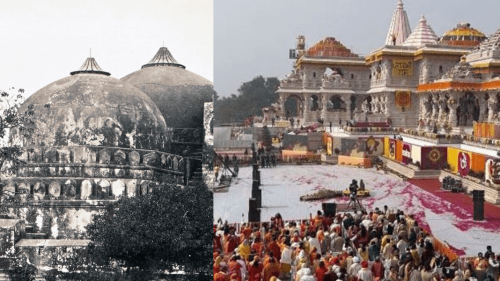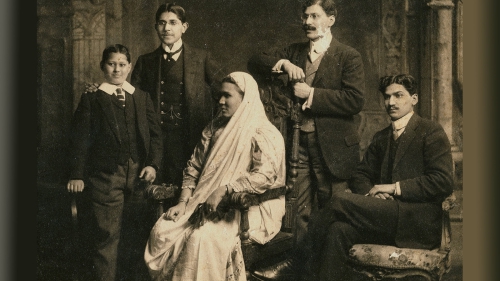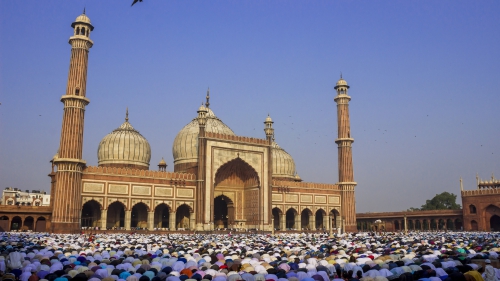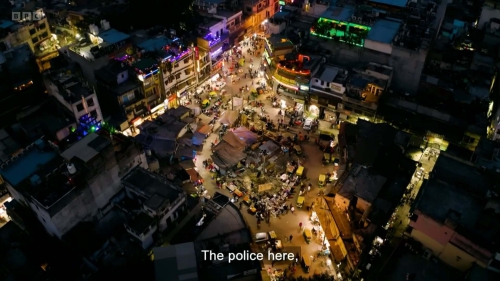Modi’s UK visit was a success

Narendra Modi has done it again. He was able to rally thousands of supporters in his latest trip outside India. This time it was in the UK.
Modi is the third in a string of controversial state leaders hosted by Britain in the past two months, following Chinese President Xi Jinping's visit last month and Israeli Prime Minister Benjamin Netanyahu's stay in September.
Modi is the first Indian prime minister to visit the UK since 2006, and his visit has polarized opinion among British politicians and the Indian diaspora. In 2002, an alleged arson attack on a train in Gujarat province, where Modi was chief minister, killed some Hindu pilgrims and sparked anti-Muslim pogroms. Estimates vary, but over the following few months, nearly 2,000 Muslims were killed by Hindus. Women were raped, mosques destroyed and bodies dumped into mass graves.
Modi was accused of not only turning a blind eye to the killings but also of being implicitly involved in this genocidal attacks against minority Muslims in his state. The UK, US and EU swiftly cut off diplomatic relations with him. A decade later, India's Supreme Court cleared Modi of complicity in the killings - a ruling challenged by some Indian Muslims - but criticized him for showing a lack of remorse for the tragedy. Soon after the court ruling, the ban on Modi visiting the UK was lifted in 2012.
Modi is now the prime minister of India, the largest illiberal democracy in the world. He has made clever use of social media to promote his rise in popularity, both at home and abroad. He was the first Indian politician to open a Twitter account and now has nearly 16 million followers, making him the second most followed politician after US President Barack Obama.
Modi is very popular amongst many diaspora Indians living outside India, who have increasingly become backers of the Hindutvadi fascist ideology, advocated by the BJP, Modi's party. These fascist sympathizers want India to be a state for Hindus only, and not any other minorities.
Already measures are taking place all across India to marginalize Muslim minorities economically, socially and politically. Christian churches and Muslim mosques are routinely attacked and false cases are filed to take possession of such places of worship unless they could be razed to the ground Babri-masjid style.
The slaughter of cows has been banned in many Indian states, and even the traders in this business have faced coordinated attacks from Hindutvadi fascists inside India. Haryana, which made sale of beef a non-bailable offence a few days after Maharashtra in March this year, is the 13th such state. In March 2015, Maharashtra government extended its ban on cow slaughter to bullocks. As bulls are the main source for hides, this has caused a severe shortage in the leather market. Ninety-eight tanneries closed in Kanpur alone. In Maharashtra, the leather business is said to have gone down by nearly 90% after the state extended the ban on cow slaughter to bullocks in March this year. Businessmen running tanneries say that Gujarat and Maharashtra, both important coastal states, are not even letting containers of imported hides and other raw, semi-processed leather material pass through easily. This has resulted in huge cost overruns.
A total of 3,000 tanneries are estimated to be running in Tamil Nadu, West Bengal and Punjab, besides Kanpur, which is the leather hub of India. Together, they export roughly Rs 10,000 crore worth of processed leather from India. This market was estimated to double by 2020.
In its effort to protect cows, the BJP has potentially delivered a death knell to India's leather industry.
Lately, there are much talk about stopping the leather and tannery industry all across India, which is mostly run by many Muslims. Already, as many as 1.5 lakh people have lost their jobs in this period. All these measures are taking place to economically ruin Indian Muslims, creating an environment in which they would be forced to leave their homeland for an uncertain future.
It goes without saying that Modi remains a highly controversial political figure in our time. In July, 39 British MPs signed an Early Day Motion calling on Prime Minister David Cameron to raise human rights concerns with Modi during his visit. Labour Party leader Jeremy Corbyn is a supporter of the motion. It calls for the release of Indian political prisoners, several of whom are on hunger strike, draws attention to human rights abuses in Kashmir, and criticizes the Indian government's ban on the BBC documentary "India's Daughter," which covers the gang rape and murder of a young woman in Delhi. Modi also faces condemnation for stopping Greenpeace activist Priya Pillai from coming to Britain as she was about to board her plane. Pillai was on her way to brief MPs on her work. In 2013, Corbyn called on the-then coalition government to reinstate a ban on Modi entering the UK. However, the leader of the opposition recently announced his plans to meet with the Indian leader privately on Saturday to discuss human rights.
Over 200 prominent authors including Rushdie had asked Prime Minister Cameron in a letter to raise the issue of “rising climate of fear” and “growing intolerance” in India with Modi. Booker Prize winner Rushdie, recent Booker prize shortlisted British-Indian author Neel Mukherjee and other well-known names like Ian McEwan and Hari Kunzru were among the signatories of the open letter to Cameron.
Modi's visit to UK was organized by Europe India Forum in partnership with 450 organizations, many of which are owned and/or run by rich Hindutvadis.
On Friday afternoon, Modi addressed some 60,000 people - almost all British Indians - at a grand reception entitled: "Two Great Nations. One Glorious Future" in Wembley Arena. As it has happened before with Modi's visit in New York City, and thanks to the rich supporters of the BJP within the diaspora community, there were unmistakable signs of the 'Modi-mania' with a huge display of fireworks, which coincided with the Hindu cultural event Diwali.
Not all British Indians were happy with Modi's visit though.
On November 8, Awaaz Network activists projected a picture of the Indian prime minister alongside a swastika onto the Houses of Parliament, angering Modi supporters around the world. The Awaaz Network is an alliance of organizations involved in the #ModiNotWelcome campaign. It includes the groups Sikh Federation UK, Caste Watch UK, Southall Black Sisters, Indian Muslim Federation and Voice of Dalit International.
More than 800 protesters, community members and women's rights groups gathered outside 10 Downing Street and opposite the Houses of Parliament on Thursday. As reported by Al Jazeera, the chants of "Free Palestine" could be heard among others, such as "Modi is a terrorist." "We are at this demonstration today to protest against Modi and the Indian government for their illegal occupation of Kashmir and the massacre of our people," said Najib Afsar, the chief coordinator for Jammu Kashmir Liberation Council.
Sikh protester Mindy Kawr said, "Modi's government is treating us like second-class citizens. They're not recognizing the Sikhs; they say there's no such thing as Sikhs." She said, "We want justice and we want people to know that what happened was genocide."
Nepali protesters Santosh Kharel and Rakash Sapkota were there to protest against what they see as a blockade of Nepal by the Indian government. "Nepalis have suffered from an earthquake recently and now they are suffering more with Modi's blockades," explained Kharel. "We are here to protest against him and his and his government's attitudes towards us."
By any measure, Modi's trip was a successful one. Prince William and Kate's Kensington Palace office said on Friday that the royal couple would make their first visit to India in spring 2016.
Cameron and Modi announced more than 20 business deals worth $13.7bn between the two countries following their meeting on Thursday, including a two billion pound ($3bn) British investment in solar power in India, and more than one billion ($1.5bn) worth of London-issued bonds to finance the expansion of India's rail network and other projects.
In our time with a lack of focus on human rights in international relations, I am not surprised with such genuflections with an accused mass murderer.
















